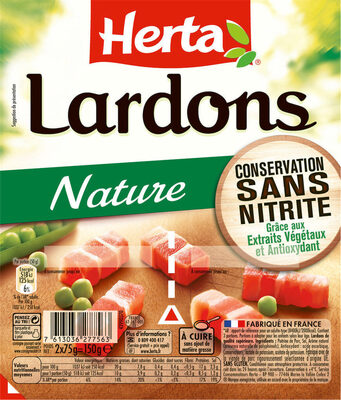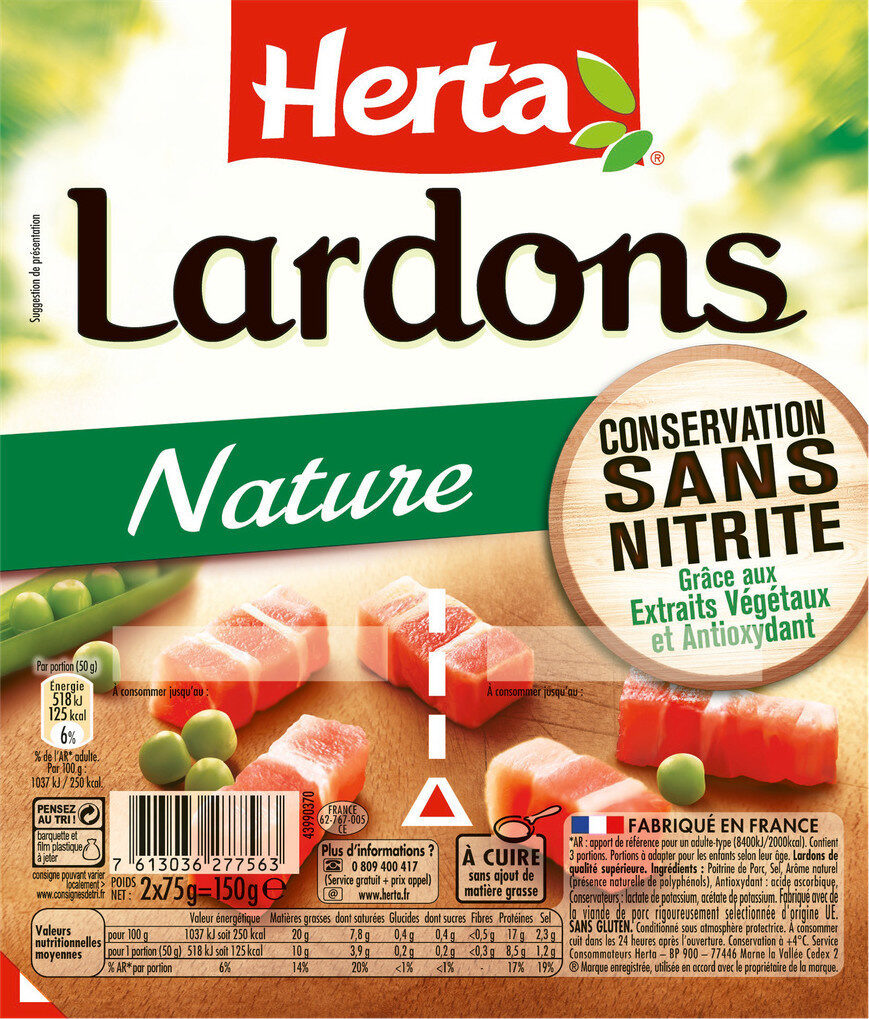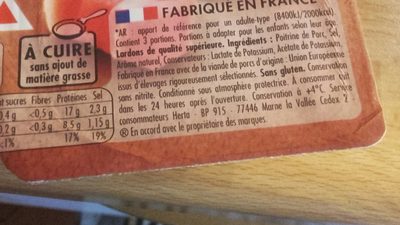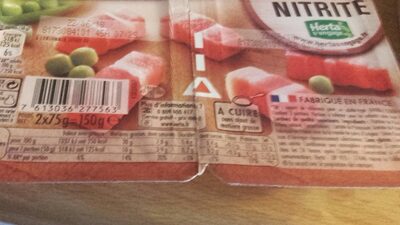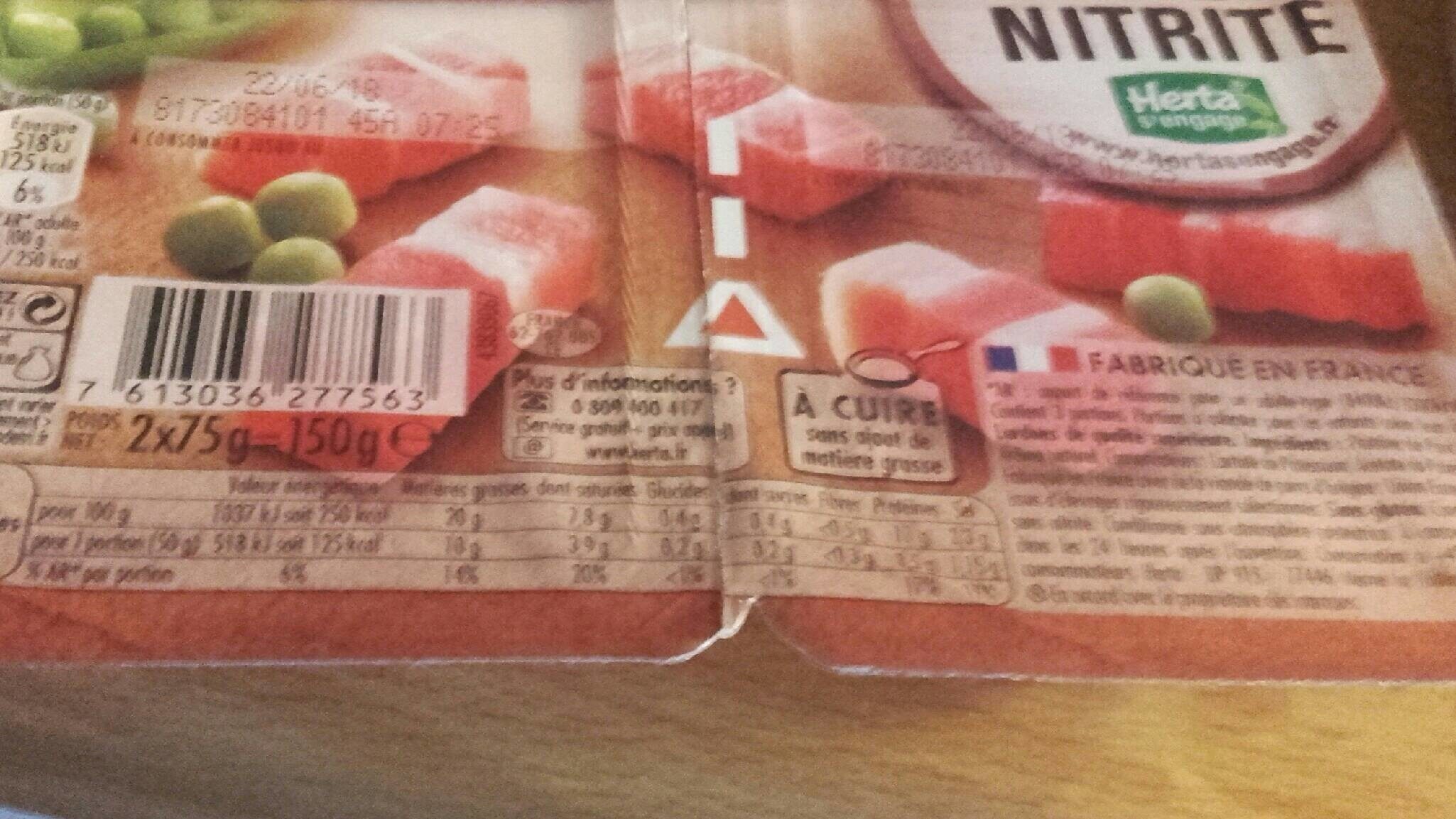HERTA Lardons nature cons.sans nitrite - 150 g (2x75 g) e
This product page is not complete. You can help to complete it by editing it and adding more data from the photos we have, or by taking more photos using the app for Android or iPhone/iPad. Thank you!
×
Barcode: 7613036277563 (EAN / EAN-13)
Quantity: 150 g (2x75 g) e
Packaging: Bag, Tray, fr:Barquette plastique, fr:Film en plastique
Brands: Herta
Categories: Meats and their products, Meats, Prepared meats, Hams, fr:Charcuteries diverses, fr:Allumettes de porc, Lardons
Labels, certifications, awards: No gluten, Made in France, Without sodium nitrite
Manufacturing or processing places: France
Traceability code: FR 62.767.005 CE - Saint-Pol-sur-Ternoise (Pas-de-Calais, France)
Stores: Auchan, Magasins U, Carrefour
Countries where sold: France
Matching with your preferences
Environment
Carbon footprint
Packaging
Transportation
Report a problem
Data sources
Product added on by kiliweb
Last edit of product page on by packbot.
Product page also edited by charlesnepote, corrigo, date-limite-app, fgouget, magasins-u, marmotte73, morenotlse, openfoodfacts-contributors, roboto-app, suny30, yuka.SFowWVNQVllwOWNvbmNjdytVM1AwL1pzNExhWGJEMnZjZkVXSWc9PQ, yuka.U1poZE92b2hwZGtKbzhBVTB4blp3L1JXL0xhMlFGTHFDdmdzSVE9PQ, yuka.U2FVWUc0bzUvY1UyeC9BYTlDcndwOUl1MVpXMFptbTRKY3BOSVE9PQ, yuka.UUpnaU5vb0x2OVl4bWNNYndpNzE0T0pWd1p5VFhYK0dldU10SVE9PQ, yuka.YUx3NUliZ011TlFIaXNZbi9oelozT0FyNXJ5R2ZVNm5FTXNwSVE9PQ, yuka.sY2b0xO6T85zoF3NwEKvllZOD-PSn2vKKB75u1WN74eNNqO4PvF_wZDEbas.
